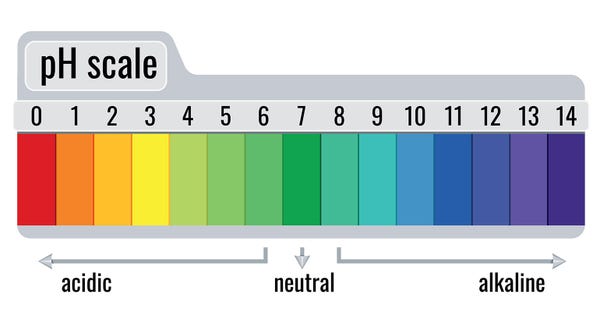Alkaline water is burning through retailers' shelves
The high-pH water is in hot demand among health-conscious and sustainability-minded consumers, and a bevy of brands is delivering.

The expanding commercial landscape for functional beverages now includes everything from OG energy drinks and kombuchas to zero-calorie sodas flooded with ashwagandha. We're also seeing bottled smoothies packed with both prebiotics and probiotics, plus beverages of all stripes containing medicinal mushrooms.
Count alkaline water in that camp as well. While not entirely new to the functional beverage market, this drink is gaining in popularity. Over the past seven years, sales have skyrocketed to an anticipated $1.3 billion in 2023 from $95 million in 2015, according to a 2021 report from Beverage Marketing Corp. By the end of next year, alkaline water is expected to claim about 20% of the entire value-added water market.
However, whereas the health advantages of certain functional beverages are evident—energy drinks, for example, aim to boost vigor—the potential benefits of alkaline water are not as obvious. What does it purportedly accomplish for the human body?
Why alkaline?
First, it's important to understand what alkaline water is. It all hinges on the pH scale, which spans from 0 (totally acidic) to 14 (totally alkaline). Acidic lemon juice, for example, has a pH of around 2, about the same as the human gut.
Normal tap water, with a pH hovering around 7.0, is considered neutral. Alkaline water, which has been treated or processed to increase alkalinity, has a pH between roughly 8.0 and 10.0.
Proponents of high-alkaline diets, which incorporate a lot of vegetables and fruits and limit meat, dairy, sugar and processed foods, champion alkalinity within the body as a health goal. Some studies have shown that highly acidic environments might appeal to cancer cells. Therefore, the theory is that increasing consumption of high-alkaline foods and beverages would make bodies less acidic, thereby mitigating chances of developing cancer.
But it's not just cancer that devotees say this eating style might help thwart, as many diseases thrive in acidic environments. Advocates also tout the diet's role in weight management, its ability to optimize digestion, its potential for benefiting the immune system and more.
To date, the science does not prove that high-alkaline diets help people avoid cancer and other diseases, or aid with other aspects of health. But this doesn't mean alkaline diets are not helpful—it just means that not a lot of research-backed proof has emerged. Regardless, because the alkaline diet is high in vegetables and fruits, some health experts trumpet the plan.

Consumers drinking it up
Whether or not alkaline water promotes health in more ways than straightforward water remains an unanswered question. But given its rising popularity, alkaline water clearly has resonated with consumers.
"Our product is very smooth and has a soft-palate feel," says Louisa Lawless, chief strategy officer at Stratus Group, the company behind alkaline water brand Perfect Hydration. "A lot of [the competition] use baking soda and salt to get to higher pH levels, but we use a nine-times purification process, incorporate electrolytes and minerals, and ionize our product. Our steps create a great-tasting product."
The brand, which offers water at 9.5 pH or greater, launched based on retailer desire: Stores wanted to see more alkaline water brands, and Perfect Hydration responded, Lawless says. The company debuted in 2016 and began national distribution in 2019. Now Perfect Hydration products are available at grocery stores, drug stores such as CVS, convenience stores and other locations.
Doctors have endorsed the product for combating acid reflux, while dentists are encouraging patients to drink it because it helps protect tooth enamel, she says.
Beyond the potential health perks, a principal selling point revolves around Perfect Hydration's sustainability. All the bottles are made from recycled plastic from Southern California, while the water comes from domestic municipal sources. Many competitors, Lawless says, truck in water from other places or even have it shipped across oceans to reach North America.
Market differentiation
While alkaline water might seem like a homogenous category, it is anything but. Along with Perfect Hydration, several other companies have emerged, each with its own take on alkaline water and a unique brand proposition.
A pioneer in the space, The Alkaline Water Co., started in 2010 with its product, Alkaline88, which boasts a pH of 8.8 and just two ingredients: purified water and Himalayan rock salt. Its gallon-size SKU is the top-selling, bulk-sized, value-added water product on the market.
Company CEO Frank Lazaran says that while Alkaline88's appeal cuts across demographics, certain consumers find it especially attractive: people living what they describe as "high-intensity lives," those motivated by fitness and wellness, and those who are conscious about what they eat and drink. Looking ahead, Lazaran says the product is "aligned with macro trends for all-natural, clean-label beverages with added value, electrolytes and high pH."
Another brand, year-old Heart Water, bills itself as alkaline water, but with a pH just a bit over 7, it could be considered just slightly alkaline, or even neutral, explains Belal Elbanna, president and CEO. Either way, the product is exceptionally sustainable, he adds, as it is 100% rainwater, collected on the roof of the company's Austin, Texas, facility.
In fact, Heart Water began as a sustainability play. With so many other water brands drawing from local reserves, depending on shipped-in water or using large amounts of energy to purify water, the company aimed to develop a product that could wade more gently through the market—and appeal to consumers with its environmental advantages. Along the way, Heart Water discovered that its method of treating rainwater yields slightly alkaline water, without needing to add sodium bicarbonate (aka baking soda) or any other ingredients to boost the pH.
"We believe in rainwater so much because it's the only water that hasn't touched the ground," Elbanna says. "All other waters hit the ground first and have a chance to be contaminated."
Before it reaches the market, the company purifies the water through filtration systems and a patented method that involves UV light rather than energy-intensive reverse ionization.
Heart Water, available mostly in Texas, the Pacific Northwest and California, anticipates expanding into the Northeast and Florida this year.
Read more about:
Natural Product TrendsAbout the Author
You May Also Like




